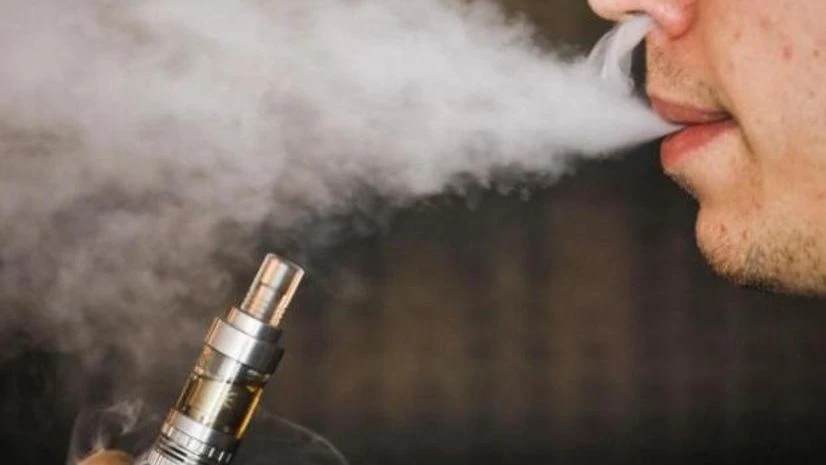The Centre on Tuesday asked all states and Union Territories to not allow the manufacture, sale and advertisement of e-cigarettes and other Electronic Nicotine Delivery Systems (ENDS), warning that its use pose a "great health risk" to public at large, especially to children and pregnant women.
ENDS are devices that heat a solution to create an aerosol, which also frequently contains flavours, usually dissolved into propylene glycolor and glycerin.
Electronic cigarettes or e-cigarettes, the most common prototype, are devices that do not burn or use tobacco leaves but instead vaporise a solution, which a user then inhales. The main constituents of the solution, in addition to nicotine, are propylene glycol (with or without glycerol and flavouring agents).
In the advisory issued on Tuesday, the Union Health Ministry said as per the World Health Organisation report on the Global Tobacco Epidemic 2017, the governments of 30 countries like Mauritius, Australia, Singapore, Korea (Democratic People's Republic), Sri Lanka, Thailand, Brazil, Mexico, Uruguay, Bahrain, Iran, Saudi Arabia and United Arab Emirates, have already banned ENDS.
"It is evident that the Electronic Nicotine Delivery Systems (ENDS), including e-cigarettes, heat-not-burn devices, vape, e-sheesha, e-nicotine flavoured hookah, and the like devices or products available by whatsoever name, that enable nicotine delivery or its use, are a great health risk to public at large, especially to children, adolescents, pregnant women and women of reproductive age," the advisory said.
It is also evident that ENDS are not approved as NRTs (nicotine-replacement therapies) under the Drugs and Cosmetics Act and rules made thereunder, it said.
Also Read
"As such, the states/Union Territories are advised, in larger public health interest and in order to prevent the initiation of ENDS by non-smokers and youth with special attention to vulnerable groups, to ensure that any ENDS, including e-cigarettes, heat-not-burn devices, vape, e-sheesha, e-nicotine flavoured hookah, and the like devices that enable nicotine delivery are not sold (including online sale), manufactured, distributed, traded, imported and advertised in their jurisdictions, except for the purpose and in the manner and to the extent, as may be approved under the Drugs and Cosmetics Act, 1940 and Rules made thereunder," the advisory said.
ENDS solutions and emissions contain other chemicals, some of them considered to be toxicants. Although ENDS is generally considered a single-product class, these products constitute a diverse group with potentially significant differences in the production of toxicants and mechanisms for delivery of nicotine, the ministry said.
The advisory said ENDS aerosol contains nicotine, the addictive component of tobacco products. In addition, to create dependence, nicotine can have "adverse effects" on the development of the foetus during pregnancy, it warned in the advisory.
"It may contribute to cardiovascular disease to the people who use ENDS. Also, nicotine may function as a 'tumour promoter' and seems to be involved in the biology of malignant diseases. Foetal and adolescent nicotine exposure may have long-term consequences for brain development, potentially leading to learning and anxiety disorders," it said.
A number of metals, including lead, chromium and nickel, and chemicals like formaldehyde have been found in aerosols of some ENDS, with concentrations equal to or greater than traditional cigarettes, under normal experimental conditions of use.
As such, the evidence is sufficient to warn children and adolescents, pregnant women, and women of reproductive age against ENDS use and nicotine, the advisory added.

)
